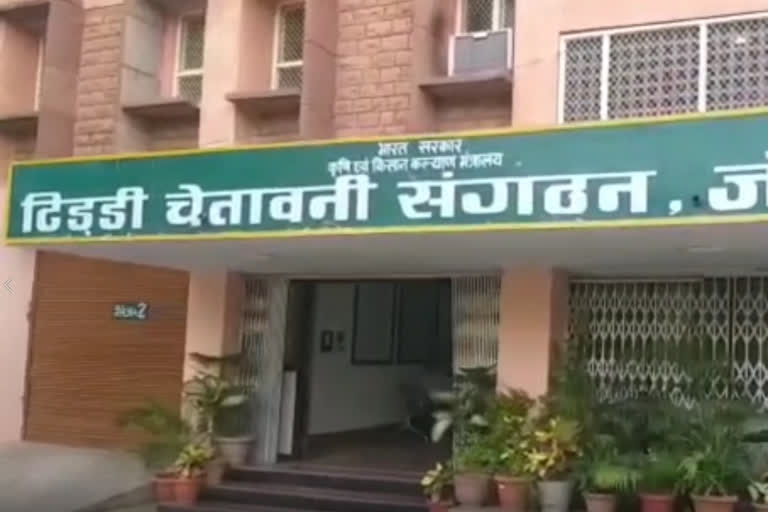Barmer (Rajasthan): After sightings of locusts were reported in villages around Rajasthan's Jaisalmer (near Pakistan border), Jodhpur-based Locust Warning Organisation (LWO) is gearing up to tackle any major attack by the tropical grasshopper.
Locust attacks have been reported in the region after a gap of 26 years, according to LWO officials.
"Locusts have been seen in Jaisalmer. These have come in from Pakistan and may spread to places like Barmer, Jaisalmer, Phalodi, Bikaner and Suratgarh. We have used malathion (a chemical pesticide) and are ready with all the required equipment to tackle the locust. Our teams have reached all the circles," Mahesh Chandra, LWO official told a news agency.
Chandra added that locusts are generally seen during the months of June and July, as it is active from summer to the rainy season.
"We want to tell people to not panic and inform LWO whenever they see locusts anywhere near them. We have also issued helpline numbers," he said.
The last major locust outbreak was reported in Rajasthan in 1993.
According to a locust situation update by the UN Food and Agriculture Organisation, "The longer-term outlook suggests that there is a moderate risk of a few swarms migrating after mid-June from the spring breeding areas to the summer breeding areas along both sides of the Indo-Pakistan border"
The FAO raised the alarm on the locust outbreak in northeast Africa and Saudi Arabia in February, saying that heavy rains and cyclones have boosted locust breeding since last October. It then posted an update in early May stating that breeding had intensified in Iran and Saudi Arabia, and occurred on a smaller scale in southwest Pakistan.
Adult locust swarms can fly up to 150 kilometres in a day with the wind and adult insects can consume roughly their own weight in fresh food per day. A very small swarm eats as much in one day as about 35,000 people, posing a devastating threat to crops and food security.
Also read: Tali from Assam ready to take responsibility



